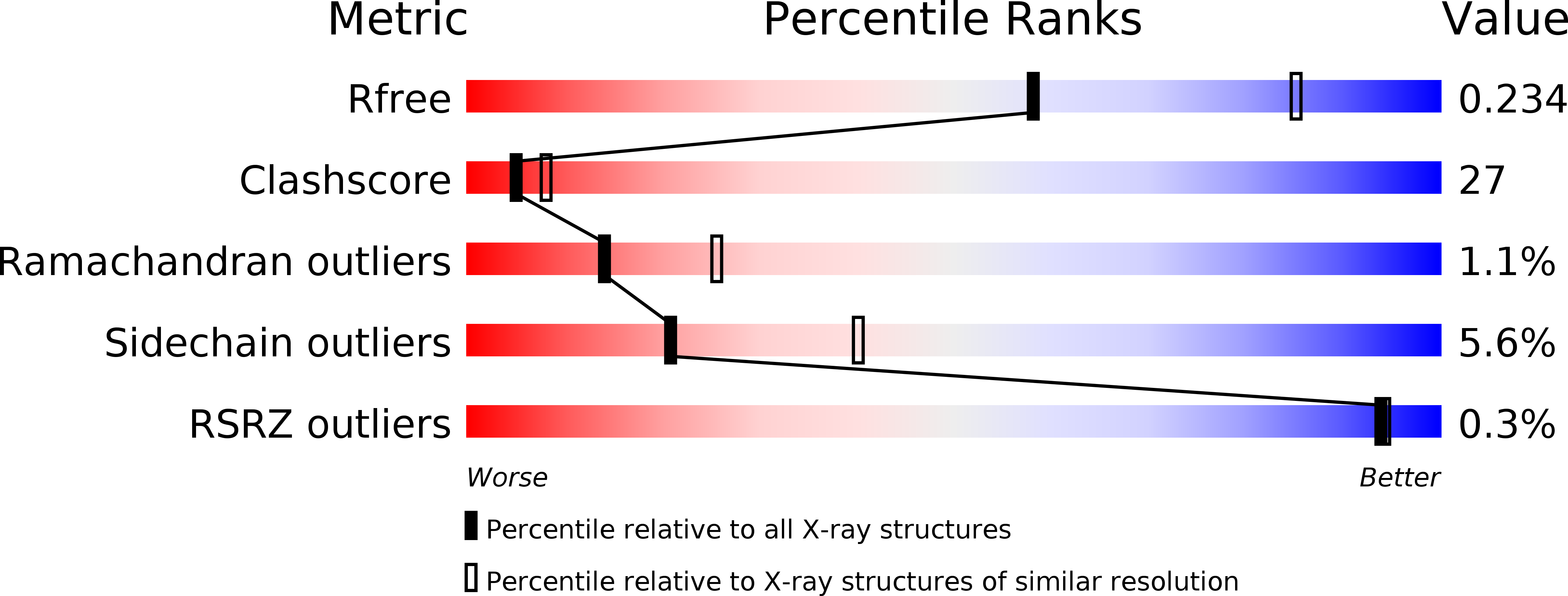Structural analysis of sialyltransferase PM0188 from Pasteurella multocida complexed with donor analogue and acceptor sugar.
Kim, D.U., Yoo, J.H., Lee, Y.J., Kim, K.S., Cho, H.S.(2008) BMB Rep 41: 48-54
- PubMed: 18304450
- DOI: https://doi.org/10.5483/bmbrep.2008.41.1.048
- Primary Citation of Related Structures:
2C83, 2C84, 2IY7, 2IY8 - PubMed Abstract:
PM0188 is a newly identified sialyltransferase from P. multocida which transfers sialic acid from cytidine 5'-monophosphonuraminic acid (CMP-NeuAc) to an acceptor sugar. Although sialyltransferases are involved in important biological functions like cell-cell recognition, cell differentiation and receptor-ligand interactions, little is known about their catalytic mechanism. Here, we report the X-ray crystal structures of PM0188 in the presence of an acceptor sugar and a donor sugar analogue, revealing the precise mechanism of sialic acid transfer. Site-directed mutagenesis, kinetic assays, and structural analysis show that Asp141, His311, Glu338, Ser355 and Ser356 are important catalytic residues; Asp141 is especially crucial as it acts as a general base. These complex structures provide insights into the mechanism of sialyltransferases and the structure-based design of specific inhibitors.
Organizational Affiliation:
Department of Biology and Protein Network Research Center, Yonsei University, Seoul, Korea.


















